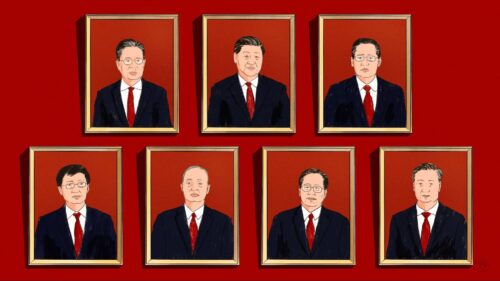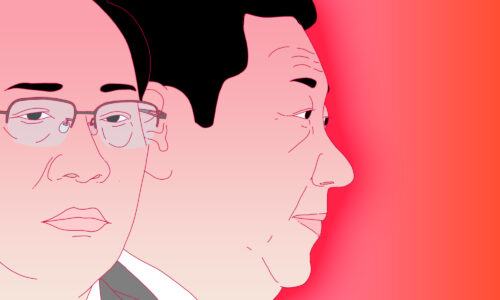‘Maximum of 10 foreigners’: A ‘Two Sessions’ security measure

This notice was posted in front of Pyro Pizza, also in Wudaokou:
https://twitter.com/nathanattrill/status/972795953521426432
The notices have since been taken down, but pictures continue to circulate on Twitter and WeChat groups.
“We were informed of the new policy the week before at a meeting with local officials,” one of the store owners said, asking not to be identified. He confirmed that his staff would enforce the policy until the annual political gathering of the Communist Party, known as the Two Sessions, ends on March 20.
“It’s the first time that foreigners have been directly targeted with security regulations for bars and restaurants during major political events,” he said. In limiting their number to 10, the local police hope to protect international students — who make up a significant portion of the customers in Wudaokou’s popular bars — from becoming the target of attacks, the owner explained.
“I understand that the policy can be taken as an offense, but the intention behind it was actually good,” he added.
Two other nearby cafes announced that they will stop 24-hour service during the duration of the Two Sessions, closing before midnight.
A bar manager said he understands if international customers feel discriminated against by the policy. He explained that they make up for half of the store’s revenue, so he’s lamenting lost business as well. He doesn’t plan on strictly enforcing the policy.
“The main thing is that it doesn’t get too crowded,” he said. “If we let in 15 foreigners who remain calm, the police won’t fine us.
“But there are a lot of drunks in this bar, so it’s safer to control the number of people who make trouble.”
Ben, an American student at Tsinghua University, said he ate at one of the restaurants in Wudaokou on Saturday. “When some friends tried to join me, they turned them away and explained it to me,” he said.
Meanwhile, some international students don’t seem to be too much bothered by the “ban.”
“I really think it’s surprising, but it’s not a racist act,” Clément Jean, a French student at Tsinghua, said. “But I don’t think it’s a racist act. We all know how some foreigners behave in bars.”
“None of us have really noticed to be honest because it’s been during the week,” said an exchange student at Peking University. “No one said anything about it in the group chat.”
As for why the notices were taken down, one store owner said, “I think some students have taken them down as souvenirs. We have no need to replace them, as everyone is now well aware of the issue.”
Beijing authorities usually step up security during large political events. Last fall during the 19th National Congress of the Communist Party, many bars in the capital were closed down. Things are expected to return to normal next week.






